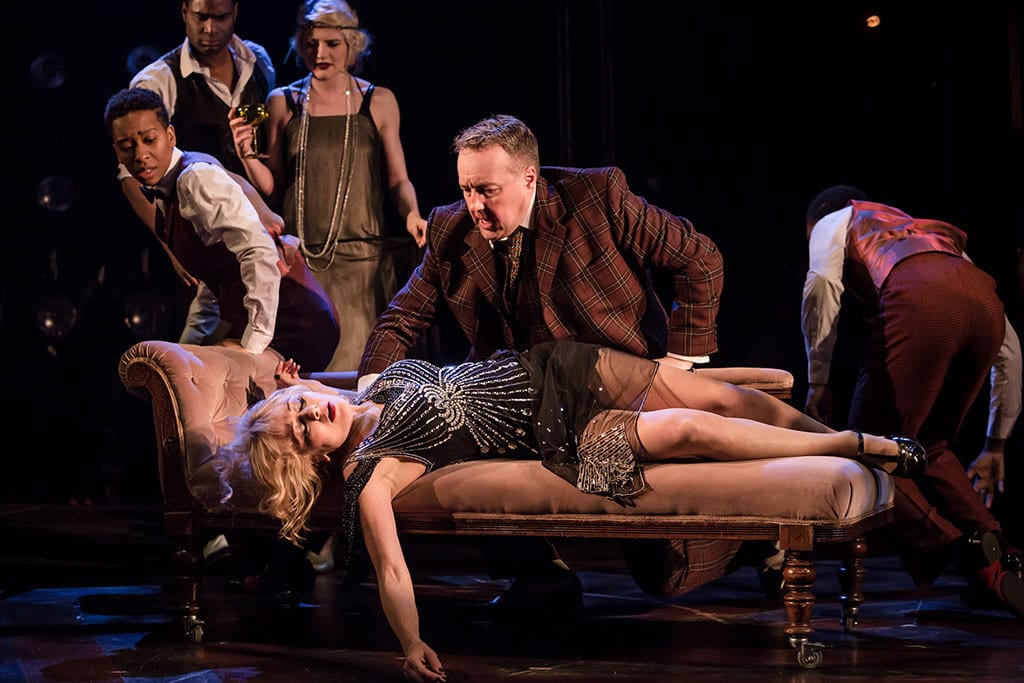The St James Theatre is no more, having been bought by Lord Lloyd Webber and renamed The Other Palace with the intention, as stated in the programme that he wants ‘… The Other Palace to become the London space where writers and producers can try out and refine new work, offering audiences the opportunity to see musicals in development’.
Very worthwhile aims. Bravo.
Which makes the choice of The Wild Party as the show to opens the venue even more curious, as it is neither new, nor particularly good, having flopped on Broadway in 2000 after playing 36 previews and 68 performances. On the evidence of this evening, I can see why.
The show is loosely based on a 1928 ‘jazz age’ narrative poem by Joseph Moncure March, though sadly a good deal of the work necessary to turn it into a viable proposition hasn’t been done. That being said, just about everything else about the show – with the exception of the material – is excellent.
The story is set in New York where a slightly second-rate Vaudeville dancer, Queenie (Frances Ruffelle) lives with her decidedly second-rate, jealous, and violent Vaudeville comedian lover, Burrs (John Owen-Jones).
Seemingly for no particular reason, other than that they want to, they decide to throw a party, and invite a whole circuit full of Vaudeville acts and ‘show people’.
(Spoiler Alert) At the party Queenie’s friend, Kate (Victoria Hamilton-Barritt) turns up with a new man, Black (Simon Thomas) who Queenie wastes no time in falling for. Queenie and Black end up in bed together, the jealous Burrs pulling a gun on them. A struggle ensues for the gun, which Queenie gets hold of, and she shoots Burrs dead.
Sadly, you don’t really empathise for either Queenie or Burrs, which makes the show a very long two hours, during which there are 38 musical numbers and reprises (yes, you did read that right…) most of which are ‘charm songs’ songs which introduce character but don’t further plot. As such, it’s all a very tedious evening.
La Chiusa’s music is accomplished, though it needs more light and shade (everything seems to be occurring during a heightened state of reality which gets very wearing after a while).
As I said, there are compensations. Soutra Gilmour’s multi-level set is excellent, Chris Cahill’s costumes spot on, and the new orchestration by Theo Jamieson defines ‘jazz age’.
As well as the leads, there are some stand-out supporting roles, including the mesmeric Dex Lee as Jackie, and Steven Serlin and Sebastian Torkia as two theatrical producers wrestling with their Jewishness and wish to get on.
All in all though, the cast, set, lighting, and excellent direction and choreography from Drew McOnie, just don’t make up for the fact that the book just doesn’t work, so the show is scuppered almost as soon as it gets going.

